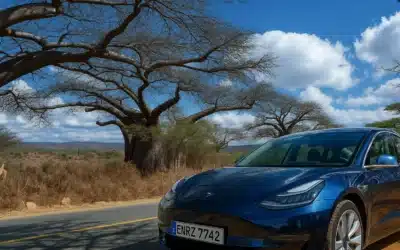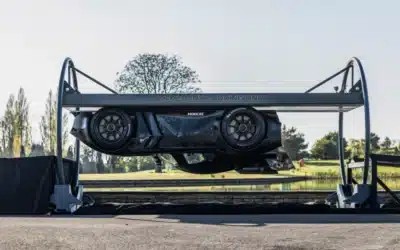
Car buyers in Saudi Arabia are looking to transition to electric cars, lured by the appeal of advanced tech, prestige and social status, as well as environmental concerns.
According to the EV Intender Study conducted in Saudi Arabia by Ipsos UAE for Al-Futtaim Automotive KSA, the adoption of electric vehicles (EVs) in the Kingdom is increasingly driven not just by environmental consciousness (56%) but by the allure of cutting-edge technology (52%) and the desire for social status and prestige (46%).
The study is based on a cross-section of 500 responders constituting 79% Saudi nationals, 57% men (43% women), nearly half (48%) aged between 31-40, with more than a quarter (27%) earning a monthly salary of over SAR 20,000.
The reliance on cars in the Kingdom is significant, with vehicles being cited as an essential part of daily routines for work commutes (62%), business needs (46%), and family transportation (36%). On average, these daily activities accumulate to a driven mileage of 73km, which while significant, is well within the capability of the vast majority of EV offerings.
Unsurprisingly, Tesla was the most widely recognised EV brand among respondents, however a surprising insight from the study revealed that Chinese marques were not far behind. One Chinese brand equalled Tesla with 35% of respondents stating they were very familiar with both Tesla and MG. Only 5% had no awareness of Tesla, which rose only slightly to 7% for MG.

EVs are extremely common on the roads of China. Saudi drivers have high knowledge of a number of Chinese EV brands, such as MG, BYD, Chery and Geely.
Changan was the second Chinese carmaker to score highly (31%) in the familiarity score, followed by Chery at 25%, BYD at 22% and Geely at 21%. This indicates a highly competitive landscape for EVs in Saudi Arabia, where Tesla is only marginally ahead of Chinese competition in terms of brand recognition.
Over half, at 51%, were planning to buy a new car within the next six months, with 56% looking to replace their main car (where there was more than one car in the household), key brands they were considering, included Hyundai and Nissan at 13%, Toyota (12%), Honda (10%), Lexus (7%) and Ford at 6%. Chinese brands were being considered by 4%.

Cars are an integral part of life in the Kingdom. The transition to hybrid and electric cars will be momentous.
Factors affecting their decision-making process included upfront costs (26%), economy (25%), as well as brand recognition, safety features, durability and resale value.
Several concerns hinder the wider adoption of EVs in the Kingdom. Key challenges include infrastructural gaps like scarce charging stations (19%), difficulties in servicing (17%), lengthy charging times (18%) and of course range anxiety (16%).
Financial hurdles, such as high initial costs (17%) and low resale values (13%), coupled with the relative unfamiliarity of EVs in the mainstream market, also pose significant barriers, emphasizing the need for increased market awareness and education on EV technologies and benefits.
The report confirms that while the appeal of advanced technology and the desire for social status, as well as eco-consciousness, can drive EV adoption in Saudi Arabia, typical electric vehicle concerns related to infrastructure, costs, range, an understanding of technology and lack of familiarity with emerging dedicated EV brands, need to be addressed. Under the declared aims of Vision 2030 significant investments are being made to develop the infrastructure – and drive the attractiveness – of electric cars to Saudi drivers.











